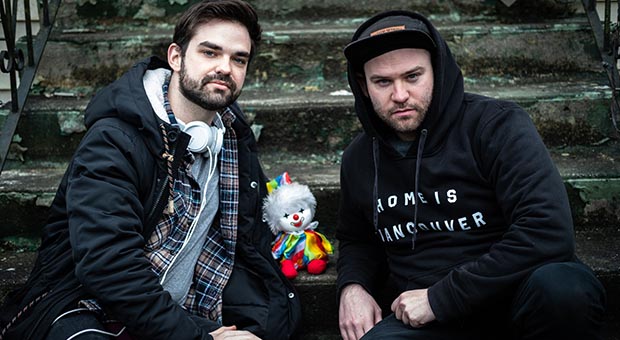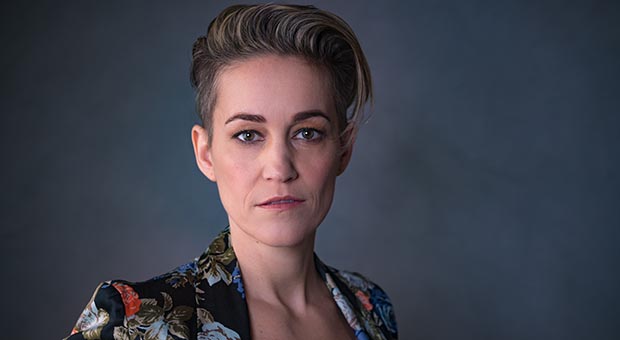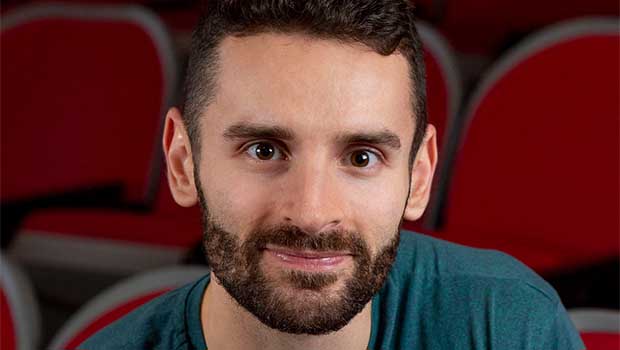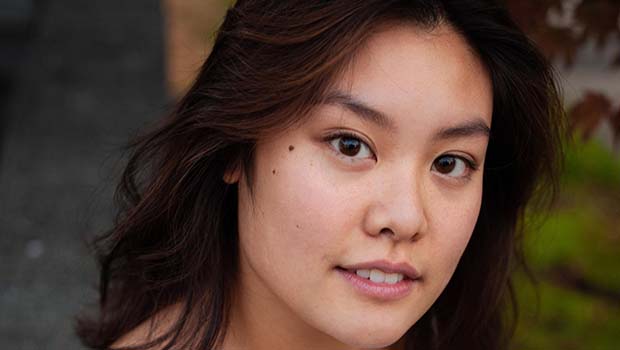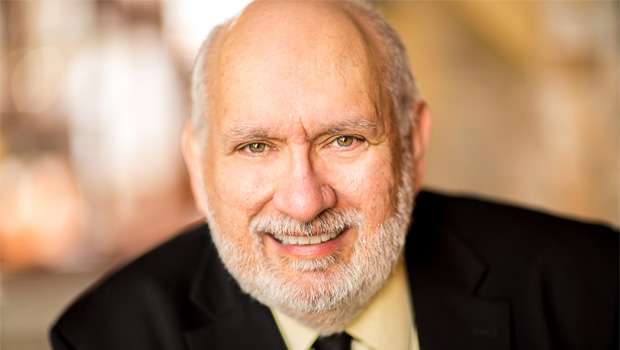
29 May The Biz Interview: Jay Brazeau
In film, television, and theatre industry circles, Jay Brazeau is well-known for his strong performances and frequent workload.
With over 200 film and television credits to his name, Jay Brazeau has appeared in a diverse slew of projects ranging from film work like Christopher Nolan’s Insomnia, Christopher Guest’s Best in Show, Ben Ratner’s Down River, and Carl Bessai’s Fathers & Sons, TV projects like The West Wing, 21 Jump Street with Johnny Depp, The X-Files with David Duchovny and Gillan Anderson,and Da Vinci’s Inquest with Nicholas Campbell, as well as countless stage roles in Vancouver and beyond.
On the eve of our May Play Sale Pop-Up Store, we caught up with Jay Brazeau AKA”The Braz” to find out more about his long career, the secret of his success, and what makes for an effective play.
______
How would you describe your creative process as an actor for getting into your characters?
Every character is different. I remember doing some play where I never even read the whole script. I was playing a character in the first act who never came back again. So what did he have to know about the second act? Nothing. So he was developed from what I had to know. In fact I don’t think I ever watched the second act of the play. It wasn’t that I am a lazy actor it’s just that I had all that I needed. Some people have too much stuff to sift through. They read every autobiography, see every film, do research at the library…..and they are right to do that if they are dealing with a complex character. But I believe with a good script all the answers should be in the script. that’s all you need. I don’t know if I have a creative process. I never went to acting school. I have a Grade 11 education. I have a street smart intuition that has always helped me. Acting really is about reacting. And not over reacting. Usually it’s about saying yes to everything that is offered to you. It’s amazing all the places that will take you.
What was the moment when you knew you wanted to be an actor?
The first time I saw Jerry Lewis on the big screen. I wanted to be like him. manic and strange and child-like. And make millions of people laugh and get paid millions of dollars. Ha! Then later I was exposed to many great actors who took me under their wings and straightened me out.
Who were your greatest influences when you were starting out?
Len Cariou. He gave me my first professional job. I should say jobs. I had 3 small parts in Cyrano de Bergerac and 3 lines. Then at Christmas, I was in a larger role in A Christmas Carol. And my final role of the season was in a Canadian play called Creeps where I played this mentally-challenged fellow who had cerebral palsy and would take out his penis and chase girls around the stage telling them he was going to disintegrate them. It was the best year of my life.
You’ve enjoyed a variety of roles on stage, on television, and on film. What creative rewards do you get from each of these three platform and do you prefer one over the others?
They are all the same and yet all so different. the only thing they have in common is you are only as good as the material you are given. I have had fantastic and shitty parts in all three. Of the three I am most likely drawn to the theatre more than the other two. It’s where I started. At the end of a two show day I could be playing Cyrano and want to party. And an audience gives you so much. They have been my best teachers. On a set, you are giving everything to a machine that doesn’t give you anything back except more coin, and at the end of the day you are exhausted.
Overall, what is the very best thing about acting?
I could have a nickle in my pocket, no hair and a pot belly and on the stage I am Casanova. I am Cyrano de Bergerac. I am Lear. How exciting it is to be a King for a Night. The greatest Swordsman in Paris and the greatest lover. Well I’m already the greatest lover so that doesn’t count.
What are a few of your most memorable moments as an actor?
Playing Tartuffe, the main character in the play that doesn’t enter till 45 minutes after the play begins. They spend the whole beginning of the play talking about you. What a set-up. I slithered on stage and stood next to a stuffed owl. Got a little laugh. Poked the owl and got a bigger laugh. Made the sign of the cross and got applause. This is before I even said a word. It was a lovely part. I’m such a bragger. And no doubt sometimes an over-actor. In my first big play Cyrano I was really worried about that. The director was the famous French actor Jean Gascon. In rehearsal all my choices were small. He took me aside one day and said, “Make it big!” “You are too small I think you are a shitty actor!” “If you are too big I can always take you down.” Good advice. Never be afraid of running blindfolded through the forest.
Willy Loman in Death of a Salesman by Arthur Miller has always been close to me because reminded me so much of my father. Especially since I have two sons and so did Willy. A tragic figure. But a joy to walk on stage every night carrying those two heavy bags. I remember trying to figure what it was that Willy was selling on the road so we could put those in my suitcases. And then reading I think it was Dustin Hoffman who asked Arthur Miller what it was that Willy is selling and his reply was “Himself.” I have been very lucky to play many wonderful characters in musicals but my fave will always be Man in the Chair in The Drowsy Chaperone. The perfect musical. And it’s Canadian. I so loved doing that part. I cried when I went back to my dressing room the night we closed.
You directed the play Poor last year, which premiered at the Vancouver International Fringe Festival. What do you get from stage directing that you don’t from acting and how does your creative approach change?
As a director you never get tired. It always surprises me when the Stage Manager says “Jay we have to stop now.” The time flies. And I’m always begging for a couple of more minutes to do the scene one more time. I love working with actors. Sometimes you have ideas about casting a character and you will hire that person and they will get a movie or a better gig and you have to recast. Someone who is totally different than the person you wanted but you must tell yourself, “There are many ways to get to Winnipeg.” All that matters is getting to Winnipeg. And you will find that this new actor has a thousand better ideas for this character. Things you would never of thought of. Those are the surprises that a director loves.
You have a reputation as one of Vancouver’s hardest working actors. What is a typical day like for you?
First off, I give the appearance of being the hardest working actor. Just because you come home drunk at 2 in the morning and turn on your TV and see me playing a shrink or something doesn’t mean I am working all the time. A lot of that stuff was shot 10 or 20 years ago. If anything, I am working less. But I can’t complain I can be very picky about things. As you get older you want to enjoy going to work every day or night. So it is important to me to have a good time, to work with a director who is not a tyrant, and to work with good actors and to play a part that is challenging. I have done a part in Urinetown, a musical I love twice for the Firehall. I was asked to do it again for the third time but I have done all I can do in that part. It is time for someone else to tackle that character. So I do turn down a lot of stuff but I am 61. There are only so many plays left in me. So I am not a hard-working actor. I do spend a lot of time on Facebook. Maybe that has something to do with it.
What advice would you give to someone who wants to pursue a career in acting?
Well you have to decide if you want to be an actor or a star. If you wanted to be a theatre actor I would say if you were young go to study with Kathryn Shaw at Studio 58. If you were older I would say study with Ben Ratner or Andrew McIlroy. If you wanted to be a star I would say move to Hollywood and hire some hacker to get your sex-tape on the internet. If you wanted to be a Canadian Movie star I would say learn to speak french and move to Montreal. If you were 60 like me I would say don’t quit. Pretty soon all your competition will be dead. Or think about making that tape again. I would love to see more found-sex-tapes with senior actors in it. You could start a new craze.
What books have been influential in your creative journey so far?
Alan Arkin has a marvelous autobiography about his life as an actor and his life as a teacher. I remember loving this autobiography called The Lunts. I read as many biographies about actors and directors as I can get my hands on. A watch all those old moves. And especially all the movies from the ’70s. Biz Books was a great place for me and I’m not just sucking up. Whenever I felt lonely I would drop down and talk to the people behind the counter find out about the latest new hot book, or run into old friends who were looking for a play. We have to support our favourite local bookseller or pretty soon they too will disappear. And if Harper had his way all the libraries would be turned into Tim Horton’s.
What makes for an effective play?
The same thing that makes an effective film or book. People are forever investing more money into the set and costumes and publicity or finding star power to launch their new theatrical extravaganza. It’s all about the story. I can watch a play with no set, 2 chairs and a table and 2 actors and be totally blown away with a great story. Hundreds of years ago that’s all people had. The story seems to always be the last thing that people look for. It’s what’s in the box that matters not how beautiful the box is decorated. The plays I love are the ones that challenge me. The ones I am thinking about weeks and sometimes years later. I did Danny and the Deep Blue Sea by John Patrick Shanley over 25 years ago and I still run into people on the street who saw that play and say it changed their life. The same with Cyrano de Bergerac by Edmond Rostand and Fiddler on the Roof by Joseph Stein and The Drowsy Chaperone by Don McKellar and Bob Martin and The Goat or, Who is Sylvia? by Edward Albee. And there are new plays. I would tell all the actors out there to find a new playwright and work with them on an exciting new.piece of theatre. We should be excited and challenged when we go to the theatre. And it is those new playwrights and new actors and new directors who will hold the keys to the future of theatre.
______
Our thanks to Jay Brazeau for speaking with us. For more information about Jay Brazeau, please visit IMDB.com.


